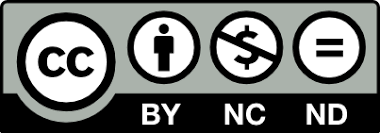TOWARDS THE PROBLEM OF PLAGIARISM IN HIGHER EDUCATION: THE STUDENTS’ PERSPECTIVE
Keywords:
plagiarism, cheating, classroom relationships, higher educationAbstract
The paper discusses the problem of plagiarism in higher education from the standpoint of students’ perception of the phenomenon in question. The empirical data comprise the results of the recent survey conducted among the first-year students of the Faculty of Psychology and Educational Sciences of Tbilisi State University, of the academic year 2020-2021. The aim of the research is to collect and analyze students’ views concerning the following issues: 1. The main causes of plagiarism in higher education; 2. Favorable circumstances for plagiarism; 3. The role of the teacher in the prevention of plagiarism; 4. The role of positive classroom relationships in the struggle with plagiarism. The study demonstrates that, according to the majority of the respondents, the tendency to plagiarize is primarily a psychological phenomenon. The findings have also shown that the lack of
competence may result in the lack of confidence, which, in turn, is perceived as the main cause of plagiarism in higher education by the students. According to the survey, positive classroom relationships have a direct influence on the level of plagiarism in both, curricular assignments and exams. The findings of the given research were partially presented and discussed at a special regional conference “Honesty, Trust, Unity: Academic Integrity & Education in a Globalized World“, in February, 2021.
Full Text (PDF)
References
Anderman, Eric M., Murdock, Tamera B. (2011) Psychology of Academic Cheating. Elsevier, 352 p.
Bereby-Meyer, Yoella et al. (2018) Honesty Speaks a Second Language. In: Topics in Cognitive Science 12 (2020) pp. 632–643. https://onlinelibrary.wiley.com/doi/epdf/10.1111/tops.12360 Accessed 8 April, 2021
Britannica, T. Editors of Encyclopaedia (2017, November 7). Plagiarism. Encyclopedia
Britannica. https://www.britannica.com/topic/plagiarism. Accessed 4 April, 2021
Cizek, Gregory J. (2003) Detecting and Preventing Classroom Cheating: Promoting Integrity in Assessment. Corwin Press, 167 p.
Enotes.com. "Funniest Plagiarism Stories…" eNotes Editorial, 23 Jan. 2008, https://www.enotes.com/homework-help/funniest-plagiarism-stories-385893.Accessed 5 Apr. 2021. International Center for Academic Integrity. Statistics.
https://www.academicintegrity.org/statistics/. Accessed 5 April, 2021
Lang, James M. (2013) Cheating Lessons. Harvard University Press, 256 p.
Lathrop, Ann; Foss, Kathleen. (2000) Student Cheating and Plagiarism in the Internet Era: A Wake-up Call. Libraries Unlimited, 255 p.
Lathrop, Ann; Foss, Kathleen. (2005) Guiding Students from Cheating and Plagiarism to Honesty and Integrity: Strategies for Change. Libraries Unlimited, 264 p.
McCabe, Donald L., Butterfield, Kenneth D., Treviño, Linda K. (2012). Cheating in College. Why Students Do It and What Educators Can Do about It. Johns Hopkins University Press, 240 p.
Stricherz, Mark. (2001) Many Teachers Ignore Cheating, Survey Finds. Education Week, https://www.edweek.org/teaching-learning/many-teachers-ignore-cheating-surveyfinds/2001/05. Accessed 5 April, 2021
The Encyclopedia of World Problems & Human Potential (2020, March 18). The Union of International Associations (UIA). Cheating. http://encyclopedia.uia.org/en/problem/134684. Accessed 4 April 2021
Whitley, Bernard E. Jr. and Keith-Spiegel, Patricia. (2001) Academic Dishonesty: An Educator's Guide. Psychology Press, 184 p.












